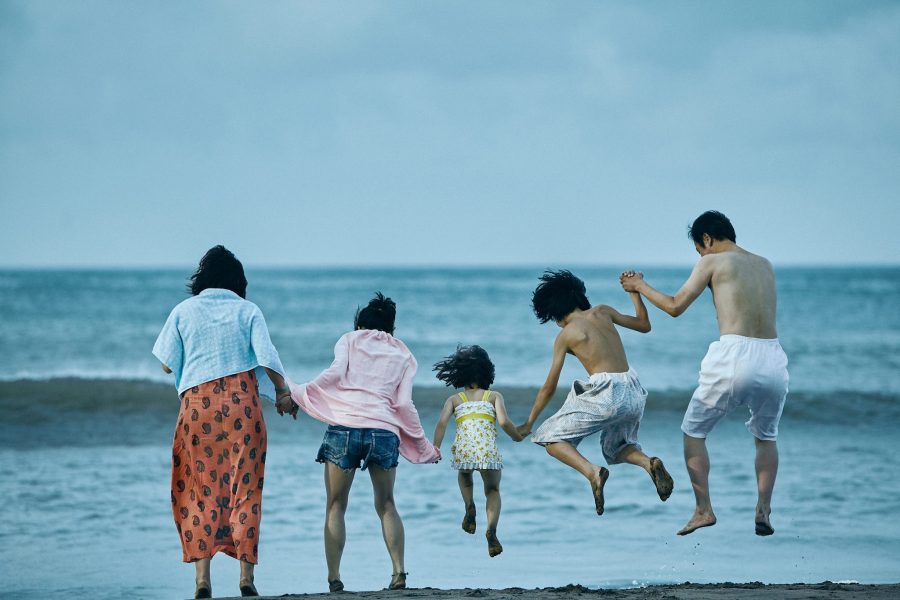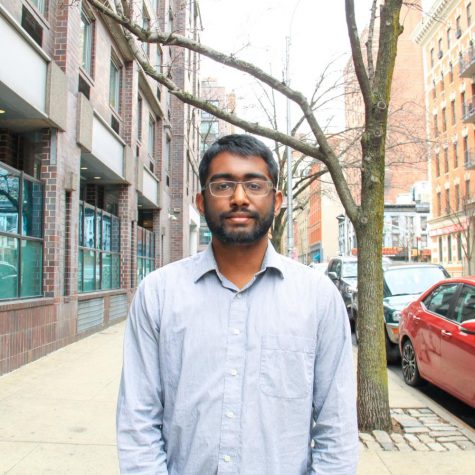It’s always difficult to know where to start when talking about a Hirokazu Kore-eda film, perhaps because of how masterfully they’re constructed. The Japanese filmmaker approaches his craft in an extremely natural way, making even the most bizarre situations feel realistic. From his narrative feature debut “Maborosi” in 1995, Kore-eda has been on the rise as one of the world’s best filmmakers, having won the Golden Osella Award for best director at the Venice Film Festival for his first release. He has been applauded often for his works since, winning the Jury Prize at Cannes Film Festival for the 2013 family drama “Like Father, Like Son.” The most recent addition to his impressive oeuvre, “Shoplifters,” swept up the prestigious Palme d’Or at this year’s Cannes Film Festival, and is currently playing at the IFC Center, where students should catch it before it flies away.
The 2018 film follows an impoverished family of shoplifters in Tokyo who take in — or, technically, kidnap — a young girl named Yuri (Miyu Sasaki) from a nearby neighborhood after observing signs of physical abuse from her parents. The film explores how Yuri changes the family and what they must do to survive.
Much like “Like Father, Like Son,” Kore-eda approaches this dysfunctional family in a unique way that draws you into the strange situation without it feeling melodramatic. There are a few twists in the film’s second half, but they are dropped on the audience so subtly that Kore-eda’s cinematic manipulation still feels organic. He is a director who places as much emphasis on his story as he does his characters, unwilling to sacrifice either of the two in crafting a narrative that one wishes would go on forever.
The shoplifting scenes best embody this nature of Kore-eda’s style. The film opens with a scene in a grocery store which is depicted like a game between father Osamu (Franky) and son Shota (Kairi Jo). They make fun gestures at each other, create witty distractions, and are going in and out of stores with a sense of normalcy and swagger — not only do they think it’s right, but Shota is raised to believe his actions are cool. But then Shota begins taking Yuri on his shoplifting exploits and one day he is called out by a store clerk, not for his stealing but for trying to teach Yuri his mischievous ways. That reality check forces him into more of a big-brother role, and as darker truths come to light, each shoplifting scene becomes progressively more disturbing. Much like the family as a whole, Shota’s curiosity and satisfaction with life starts out bubbly and loving but slowly dissipates with time.
After finding Yuri at the beginning of the film, Osamu and Shota return home. We’re then dropped into the energetic home life of the rest of the family, consisting of the mother Nobuyo (Sakura Ando), the teenage Aki (Mayu Matsuoka) and the grandmother Hatsue (Kirin Kiki). As the family gathers for dinner, Kore-eda makes the viewer feel like one of them, letting the actors’ chemistry do most of the work. Further scenes give insight into the family members’ everyday struggles of survival, such as Nobuyo working in a factory and needing to give up her job after a co-worker discovers how she took in Yuri, or Aki working behind a one-way mirror in a strip club, making each member all the more complex to the audience, and the story all the more provocative.
Franky and Ando, especially, give bittersweet performances as the mother and father trying to hold the family together. For much of the film, the parents’ charm is infectious, but they are also the ones harboring the most dangerous secrets. The subtle tension builds throughout the film, and a question begins to arise about the authenticity of the family’s relationships.
Kore-eda leaves many of the bombshells for the second half, building deliberately toward the deterioration of the happy family you think you know well. The final 30 minutes are especially striking, as they force the viewer to recontextualize what they’ve already seen. In hindsight, the ending feels inevitable but Kore-eda makes it as unexpected as could be.
Kore-eda’s film is as heartwarming as it is heartbreaking, but begs for repeat viewings to spend as much time with the family around which it revolves. Though the characters are imperfect, the performances are magnetic; certain moments sit with the viewer long after the credits roll. It is because of this that “Shoplifters,” also Japan’s entry for the Foreign Language Oscar, is one of 2018’s best films.
“Shoplifters” is playing at the IFC Center until Nov. 29.
Email Guru Ramanathan at [email protected].
























































































































































